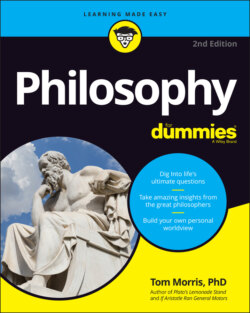Читать книгу Philosophy For Dummies - Tom Morris - Страница 43
FAMOUS LAST WORDS: A RANDOM SAMPLE
ОглавлениеThe difference between truth and falsehood can indeed be the difference between life and death. Consider the following statements, which, if false, in the right (or wrong) circumstances could be your last:
“This is not as dangerous as it looks.”
“We’re not that close to the edge.”
“I’m sober enough. Come on, it’ll be fine.”
“No, this is how you connect the wires.”
“If it wasn’t safe, they wouldn’t let us do it.”
My point? There is an absolute difference between truth and falsehood. And it matters!
Knowledge is properly justified true belief. If you were looking at a live broadcast on CNN of the world’s richest man, properly identified as such, leaning over his bathroom sink, brushing his teeth, your resultant true belief that “The world’s richest man is now brushing his teeth” would then have been properly justified and could have counted as real knowledge. You could also use that link to defend your claim to know that the man in question was brushing away. The question “How do you know?” would then be suitably answered by the response, “I’m seeing it right now live on CNN.”
What exactly is proper justification? What counts as a sufficient reason, or as adequate grounds, for a belief to be reasonably held, and to count as knowledge? The poet Ovid advised all of us long ago, “Do not believe hastily.” And his advice was good. And we need to explore this question of justification more thoroughly.
